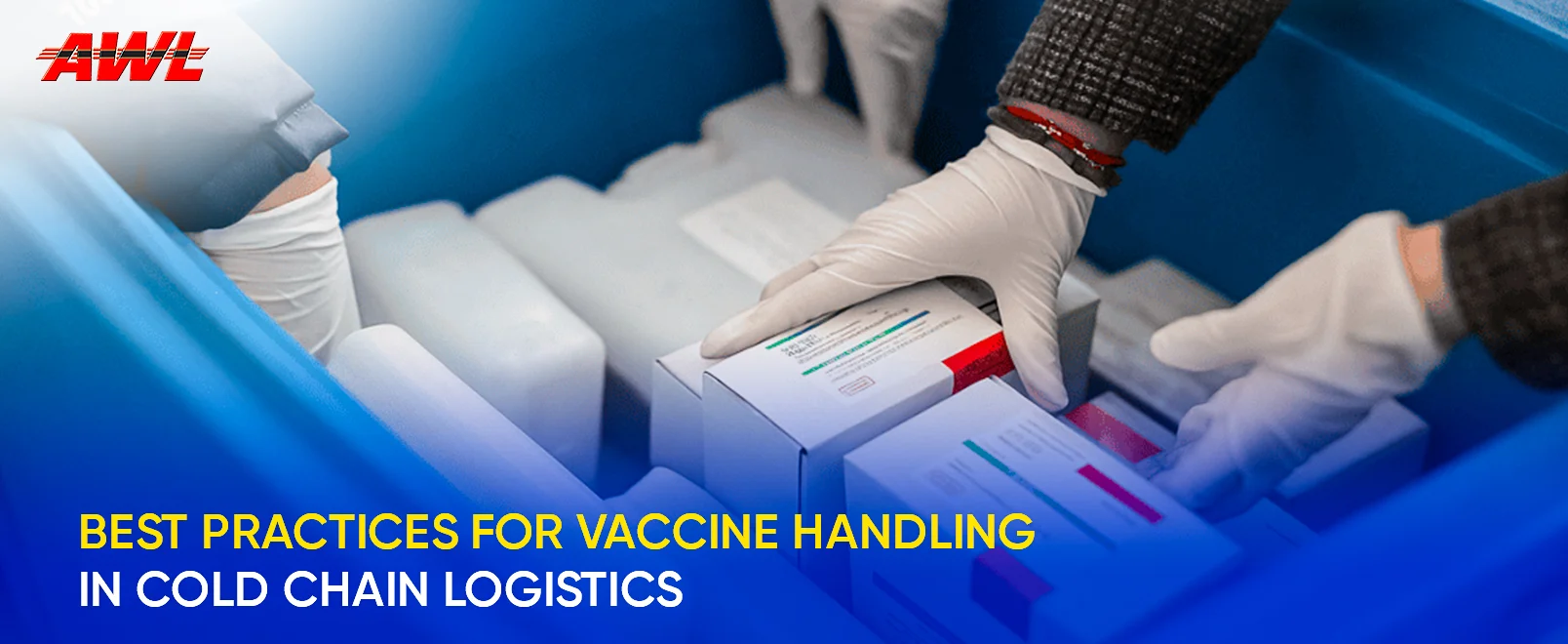

Vaccines save lives. They protect people from deadly diseases. But vaccines are fragile. They need strict temperature control. If the temperature is wrong, vaccines lose their power. This is why vaccine handling is a serious task. From the factory to the patient, every step matters. Mistakes can waste doses and harm people. Safe handling ensures vaccines work when they reach communities. The effort may seem complex, but every careful step is worth it because it helps protect human health on a large scale.
Why Cold Temperatures Are Important
Vaccines are made with active ingredients. These are very sensitive to heat. Even a small rise in temperature can damage them. Cold chain logistics slows down this damage. It keeps vaccines strong and effective. Some vaccines need to stay frozen. Others need only refrigeration. Knowing the right range for each type is critical. Without this care, vaccines can fail. Clear instructions from manufacturers must always be followed.
Storage Best Practices
The first rule is correct storage. Vaccines must be kept in special refrigerators or freezers. Ordinary equipment is not enough. Medical-grade units are best. They keep a steady temperature. Shelves should not be overloaded. Air must flow around the vaccine boxes. The units should have alarms. These alarms alert staff if the temperature goes wrong. Backup power is also important. It saves vaccines during outages. Extra checks during weekends and holidays make sure no dose is lost.
Transport Best Practices
Moving vaccines is risky. The temperature can change quickly. To avoid this, insulated containers are used. Ice packs or gel packs help keep the cold. But packs must be placed carefully. Direct contact with vaccines can cause freezing damage. Data loggers track the temperature during travel. Trained staff should check them. If problems are found, quick action is needed. Vehicles must also be reliable. A breakdown can spoil the load. Planning the route in advance also reduces delays and risks.
Training of Staff
People are key to success. Staff must know how to handle vaccines. Training should cover storage, packing, and transport. Workers must learn how to read and log temperatures. They should know what to do in an emergency. Mistakes often come from poor training. Good training reduces risks. Regular refreshers help keep staff updated. Clear communication between team members adds another layer of safety.
Monitoring and Tracking
Monitoring is not optional. It is the backbone of safe handling. Temperatures must be recorded daily. Many centers now use digital trackers. These give real-time updates. Some systems send alerts to phones. This allows fast action if the temperature changes. Records should be kept for audits. They show proof of safe handling. Keeping good records also improves learning for future operations.
Risk Management
Every system faces risks. Power failures, transport delays, and human errors are common. Planning reduces these risks. Backup generators and cold rooms help during power cuts. Spare vehicles help during breakdowns. Extra training reduces human mistakes. Having a clear action plan ensures quick fixes. Risks cannot be avoided fully, but they can be managed. Regular reviews of past mistakes also help teams prepare better for the future.
Role of Cold Chain Logistics
Here is where cold chain logistics plays a key role. It is the system that keeps vaccines cold from start to end. It covers storage, transport, and delivery. Without strong cold chain logistics, vaccines cannot reach people safely. It ensures health programs succeed. Many countries invest heavily in this system. It is one of the most important links in global health care.
Importance of Reliable Partners
Not every provider can handle vaccines. Only skilled partners should be trusted. Cold chain logistics companies bring expertise and equipment. They understand the risks and know how to manage them. With the right partner, vaccine safety improves. Without them, chances of loss rise. This is why choosing wisely is critical.
Choosing the Right Provider
How do you choose the right partner? Look for proven experience. Check if they follow global standards. Ensure they use the latest equipment. Ask if they provide real-time tracking. Support during emergencies is also vital. Only a few can meet all these needs. Among them, the top cold chain logistics companies in India have built strong trust. They deliver safe and timely results.
AWL India’s Role
One trusted name in this field is AWL India. The company has years of experience in supply chain solutions. It uses advanced technology for vaccine handling. AWL India invests in reliable cold storage systems. It also trains its teams regularly. With a strong network, it ensures vaccines reach even remote places. The focus is always on safety and quality. The company works closely with health programs to ensure doses are never wasted.
Technology in Vaccine Handling
Modern tools make the process better. Data loggers, sensors, and GPS trackers are common now. They provide real-time visibility. Cloud platforms store the data. This allows managers to review performance. Artificial intelligence helps predict risks. Technology does not replace staff, but it makes their work easier. When used well, it saves time, money, and doses.
Sustainability in Cold Chain
Sustainability is also important. Energy use in cold storage is high. New systems are now more energy-efficient. Solar-powered units are being tested. Eco-friendly materials are replacing harmful ones. These steps reduce the impact on nature. They also lower costs in the long run. Building a green cold chain is good for both people and the planet.
Common Mistakes to Avoid
Several mistakes are common in vaccine handling. Using domestic fridges is one of them. Overloading units is another. Not checking temperatures daily can be dangerous. Poor packing during transport is also a risk. Failing to train staff increases errors. Avoiding these mistakes keeps vaccines safe. A culture of care and attention can prevent many problems.
Building Trust in Vaccination Programs
When vaccines lose quality, people lose trust. Communities may avoid future drives. This is why safe handling is more than just a process. It builds public confidence. When people know vaccines are safe, they take them. This helps protect entire populations. Strong systems make public health campaigns more successful.
Conclusion
Safe vaccine handling is not a choice. It is a duty. Every step, from storage to delivery, must be correct. Cold chain logistics makes this possible. Reliable partners bring skill and systems to the process. AWL India is one such partner, trusted across regions. With best practices, the promise of vaccines can be fulfilled. Millions of lives depend on it. And with continuous learning and improvements, vaccine handling can only get safer and stronger in the years ahead.

David Williams
Team Leader